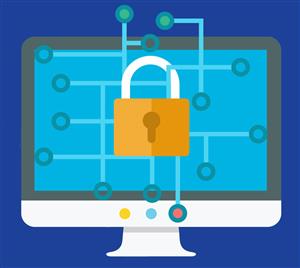CIPA, COPPA, and Student Privacy
Maintaining Students' Privacy with CIPA and COPPA
image source: woodstockschools.org
As educators, it is important to know and understand student privacy laws. CIPA, The Children's Internet Protection Act (2000), requires K-12 schools and libraries to filter the content accessible by children and ensure that children do not interact with obscene or harmful content on the Internet. CIPA applies to all schools and libraries who receive discounts from the FCC's E-Rate discount program. In addition to CIPA, schools must also consider COPPA, the Children's Online Privacy Protection Act (1998). COPPA focuses on how websites collect information from children under the age of 13. This applies to all websites and applications that children under the age of 13 may use. Although COPPA says that schools can stand in for parental consent if the website or application is being used for educational purposes only, these services must be vetted by the school and parents need to be provided information about the services, applications, and websites being used. Overall, these privacy laws, in addition to others, help to keep students safe from inappropriate and harmful material online, as well as safeguard their identities and personal information.
I believe that privacy laws combined with staff monitoring is enough to protect children in school. Outside of school is another story completely. Although some parents have child-safe settings on electronics, it is up to them to monitor their child's technology and Internet use outside of school. In my experience, some conflicts with social media and phones outside of school, such as cyberbullying, affect the class dynamics and behavior issues during school hours. This is harder for school staff to control. Even so, one excellent tool I have used in the past to monitor students while in the classroom is Hapara. Hapara is a monitoring software that can be used with student Chromebooks. It is CIPA, COPPA, and FERPA compliant. Hapara's website also includes a FAQ website and toolkit to inform potential customers (school districts) what information is collected, what is not collected, and how they provide an ethical monitoring system. Although, with my experience, students disliked being monitored by this software, it helped teachers to keep students on task and away from potentially harmful material on the Internet.
A sample teacher view of student activity on Hapara
image source: Hapara
Watch this video to see how Hapara works!
To summarize, privacy laws for students are important and DO work. These privacy laws ensure that school districts and websites are held accountable for protecting the identify and information of students. Although students can get around filters and disobey the age requirement in a terms of service, digital citizenship education can help students, parents, and staff alike become aware of pertinent information for protecting students.
Resources
Bailey, R. (2024, April 10). Students vs. School Web Filters: 3 reasons they bypass the filter. Hāpara. https://hapara.com/blog/3-reasons-students-bypass-the-school-web-filter/
Poggi, N. (2023, September 28). Three crucial online student privacy laws. Prey Blog. https://preyproject.com/blog/three-laws-that-protect-students-online-data-and-privacy?scrlybrkr=ca9c66e3



Hello Kate! I am not an educator sp as I read through CIPPA and COPA they felt very unrealistic and insufficient. It's really interesting to hear that you do find they work. Does it concern you that they are older? Do you think they could be better developed so that Teachers are not worried about monitoring students constantly? I appreciated you sharing Hapara, I've never heard of this. Then again I'm not a teacher, nor do I work in a school or have kids. It's great that you have a tool to use and I like that you acknowledged that there are flaws. If I ever work with kids I will keep that resource in mind. It might be appropriate for a library setting. Thanks for the information!
ReplyDeleteIt's great to see Hapara also promotes educating students along with the use of its software. Programs like this should be deeply discounted for school districts!
ReplyDeleteHere is the sentence that called out to me in your post: "Outside of school is another story completely". Should the internet habits we teach the kids at school help them in the kind of internet users they are outside of school. This is sometimes the drawback with laws whereby people obeys the law when someone is watching but quickly break then when no one is looking.
ReplyDeleteIn the case of children though, we can never do enough to protect them. All we can hope is that having learn how to behave safely on the internet at school, they will apply the same techniques when they go home.
Here is another article that addresses the issue.
https://consumer.ftc.gov/identity-theft-and-online-security/protecting-kids-online